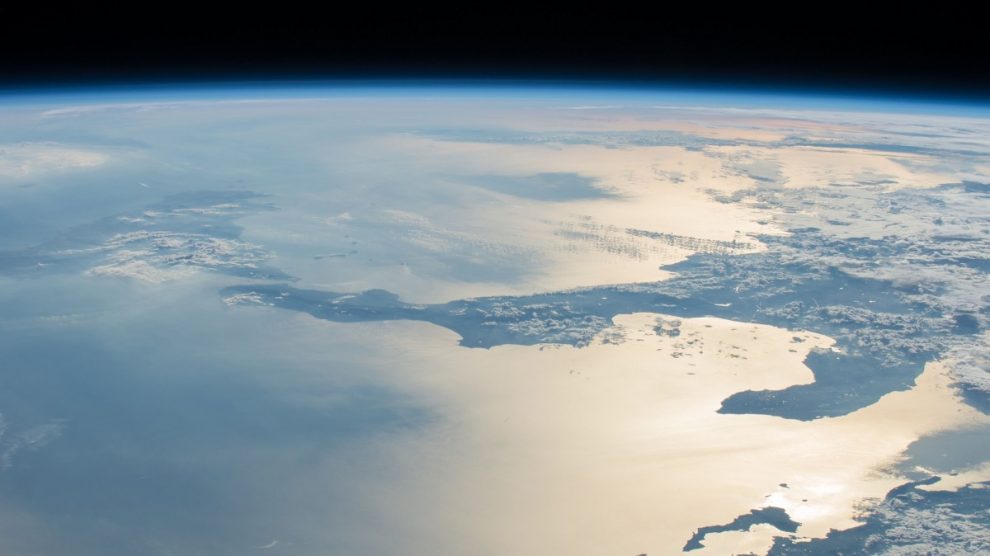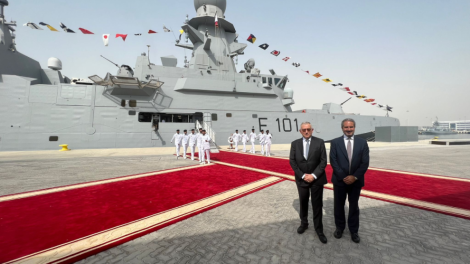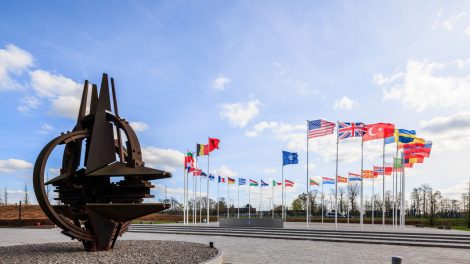Assessing Italy and the Med. The Peninsula’s central role – at the geographic, strategic, and economic levels – is well-known. But the new context of international unrest and increased turbulence is impacting its standing as a State actor in its own right, as a member of the European Union and NATO. This was the core theme at a Wednesday high-level event, organised by the Med-Or Foundation and the Centro Alti Studi della Difesa (the Italian Armed Forces’ most important academic institute)
- Some of the most crucial figures in the space were in attendance, starting with Defence Minister Guido Crosetto and Defense Chief of Staff Giuseppe Cavo Dragone (who will be the next head of NATO’s Military Committee).
- The other speakers were United States Ambassador to Italy Jack Markell, Italy’s Permanent Representative to NATO Marco Peronaci and Med-Or Foundation President Marco Minniti.
Central to the world order. The latter started his speech by highlighting that the Mediterranean will become increasingly central for the planet’s power balances, contrary to common belief, which expects the action to happen in other areas (such as the Indo-Pacific sphere). Mr Minniti threaded a red line through Russia’s war in Ukraine, the conflict in the Middle East and the Mediterranean basin, highlighting the signs of a crisis in the world order.
- “If we want to build a path of peace in Ukraine as in the Middle East, it is natural that we have to think about a reconstruction of a new world order. And to do that we cannot but imagine the involvement of the global South,” he stressed.
Looking sharp. In that regard, Italy presents itself as a key junction between the Mediterranean and the rest of Europe. And it’s not just a geographical matter, as underscored by Rome taking a leading role in the EU’s Aspides mission in the Red Sea, noted Mr Minniti. On his part, Ambassador Peronaci stressed how imperative it is for Italy and Europe to take up the defence of trade routes, as well as strategic infrastructure such as submarine cables, “which must be given the utmost attention, especially in the context of hybrid warfare.”
Let’s talk threats… The threats hovering over the Mediterranean, and the need to prevent it from becoming a hybrid war zone were addressed by Admiral Cavo Dragone. The Defence Chief of Staff expressed concern about the crises enveloping Europe and called to “prevent dangerous dynamics from [becoming] hybrid weapons aimed at Italy and Europe.” He emphasised disinformation, made increasingly dangerous by new technologies, is “an invasive threat that develops in a structured manner through a multiplicity of strategic centres and relevant financial flows” that has “taken on a transnational dimension, and this requires joint action by the European Union and NATO.”
… and worsening conditions. “The next two years will be the darkest since the postwar period. There has never been such great chaos in the world order,” remarked Defence Minister Crosetto, noting the deterioration of worldwide security conditions. “It is not possible to ensure security with the same rules and timelines as five years ago; the world has changed,” he said before addressing the fractious nature of Italian public discourse around defence.
- “There is work to be done at the national level, including cultural work. We need to explain that an investment in Defence is an investment in security,” he said.
The view from the US. Ambassador Markell, too, reaffirmed the Med’s role in connecting the world. It’s also the number one priority of Italian foreign policy, he remarked, not only as a State actor but as part of the Atlantic Alliance, which “is committed to the security of the Mediterranean and Europe.” And it is also thanks to security partnerships that the robustness of US-Italy relations is now “stronger than ever,” he said before thanking Rome for its “unwavering support.”





